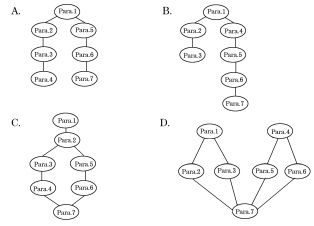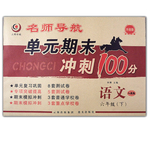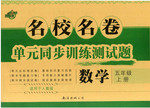题目内容
【题目】阅读理解。
You signed up for soccer, and played every game of the season. Sure, you're not the best player on the team, but most days you gave it your all. Do you deserve a trophy (奖杯)?

If the decision is up to Carol Dweck, the answer would likely be no. She's a psychology professor at Stanford University, California. She says a player doesn't have to be the best to get a trophy. But those who receive an award should have to work for it. She suggests trophies go to the most improved player, or the one who contributed most to the team spirit, as well as to those who play the best.
“The trophy has to stand for something,” Dweck told TFK. “If we give a trophy to everyone, then the award has no value.” Dweck argues that giving kids trophies for particular reasons, such as improving in a sport, teaches kids that adults value hard work and trying our best.
Others say that there's no harm in giving awards to all kids who play a sport, regardless of how they played or whether or not they improved.
“I think we should encourage kids' participation in sports,” says Kenneth Barish, a psychology professor at Weill Cornell Medical College, in New York City. “A trophy is one way to encourage kids' efforts.”
Barish argues that when we single_out only the best or even the most improved players with a trophy, we are teaching kids the wrong lesson. We are sending the message that winning is everything. “Winning is only part of the equation (等式),” Barish told TFK. “Playing sports also teaches kids about teamwork and the importance of exercise.”
There will be plenty of opportunities for kids to learn about competition as they get older, says Barish. They'll soon realize that only one soccer team wins the World Cup and only one football team wins the Super Bowl. For now, he thinks there's nothing wrong with letting all kids who play a sport feel like winners. That means trophies for everyone.
【1】According to Carol Dweck, which player should receive a trophy?
A.Tony, the most attractive player of the soccer team.
B.David, a soccer player who is both clever and funny.
C.Peter, who is ready to help his partners to score goals.
D.Jim, a soccer player who tries his best to win the game.
【2】Which of the following statements would Kenneth Barish agree with?
A.There is no sense in giving a trophy to everyone.
B.Kids fond of playing sports should be rewarded.
C.Kids should be given trophies for trying their best.
D.It is necessary to encourage kids' participation in sports.
【3】The underlined phrase “single out” in Paragraph 6 probably means “________”.
A.honour B.choose
C.value D.stress
【4】Which shows the correct structure of the text?

【答案】
【1】C
【2】D
【3】B
【4】B
【解析】
试题分析:
【1】解析:选C 推理判断题。根据第二段可知,斯坦福大学的心理学教授Carol Dweck认为,获奖的运动员未必是最好的运动员。她认为,进步最大的、对团队精神贡献最多的和表现最佳的运动员都应获奖。故C项正确。
【2】解析:选D 细节理解题。根据第五段可知,纽约市威尔康乃尔医学院的心理学教授Kenneth Barish认为,我们应该鼓励孩子参加体育活动。颁发奖杯就是一种激励方式。
【3】解析:选B 词义猜测题。根据第六段可知,Barish认为,当我们挑选出最佳球员或进步最大的球员并授予他们奖杯的时候,我们给孩子们传递了一个错误的信号:获胜就是一切。因此画线的短语“single out”意为“挑出”。
【4】解析:选B 篇章结构题。本文的第一段为导语,导入讨论的话题。第二、三段陈述了斯坦福大学的心理学教授Carol Dweck的主要观点:反对参与者人人获奖。下文(第四段至第七段)陈述的是纽约市威尔康乃尔医学院的心理学教授Kenneth Barish的观点,即赞成参与者人人获奖。因此B项清晰地展示了本文的结构。

 名师导航单元期末冲刺100分系列答案
名师导航单元期末冲刺100分系列答案 名校名卷单元同步训练测试题系列答案
名校名卷单元同步训练测试题系列答案




